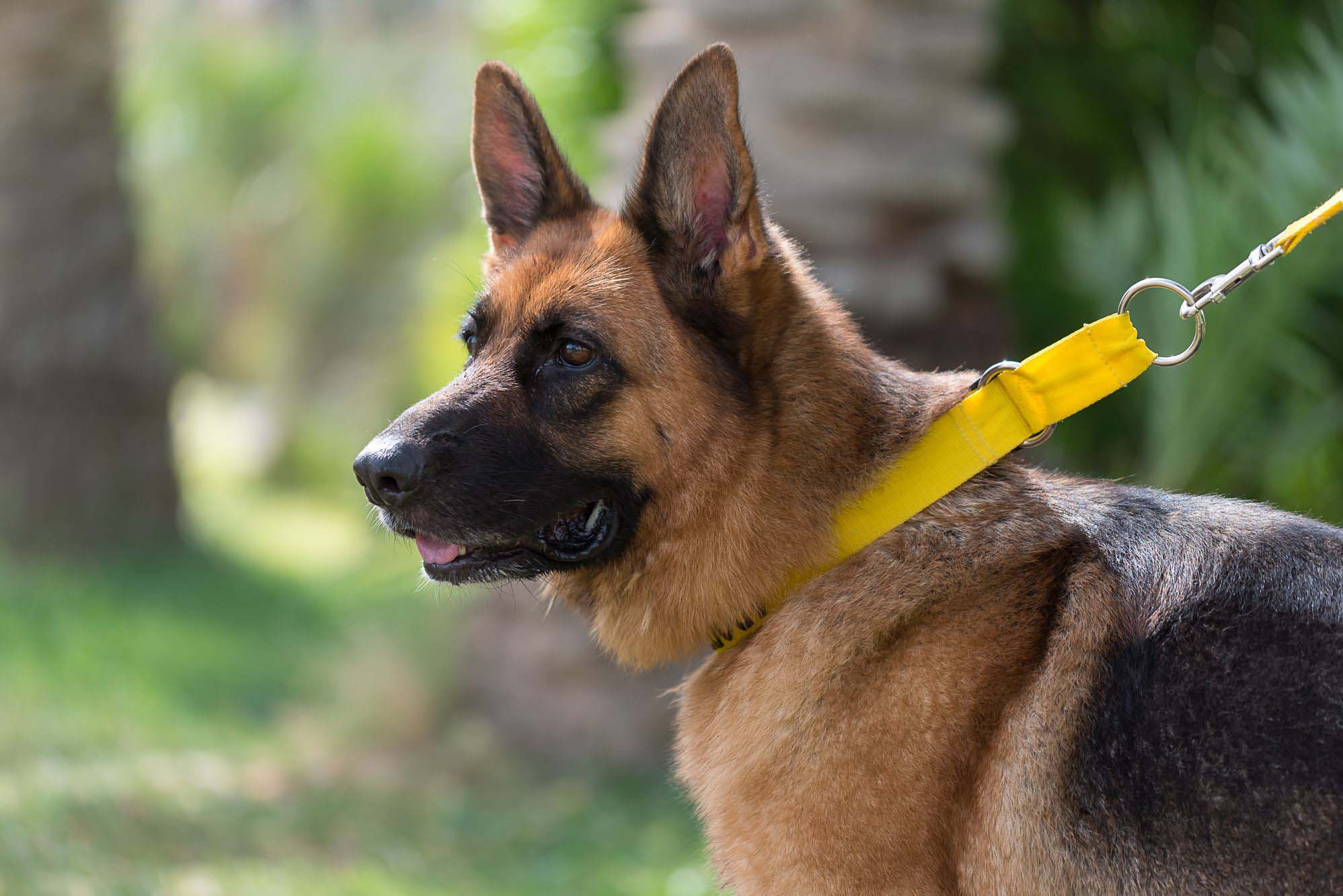
As it struggles to handle an influx of abandoned animals during the summertime, Paws Rescue Qatar (PAWS) said it now faces an additional challenge of serving as a drop-off point for animals rescued by security forces.
The shelter, located on a private farm in Muaither that is owned by a government official, has taken in over 50 dogs in the past week, most of whom have been dropped off by policemen who picked the animals up from the streets, the group’s management said.
Speaking to Doha News, PAWS co-founder Alison Caldwell said:
“We’ve had five dogs dropped off by the police just last night, and get new ones almost every morning from either the police or the ministry.
Before Eid we took in 26 dogs, and in the few weeks since then, we’ve taken in 23 more, excluding the five from last night. We’re completely at capacity, with over 200 dogs where we once had 140.”
Lack of funding
The influx of animals poses a particular problem due to a lack of funding, Caldwell said.
“We are not supported at all by any organization or governmental agency. The sheikh whose land we keep our animals on was kind enough to allow us to use the premises for free, but aside from that, we pay for everything.

He has a kind heart, so ministry officials who know him think that it’s alright to bring in animals that they’ve found or rescued here, but we have no idea what to do with the amount we are getting in anymore.”
Each month, the shelter spends some QR20,000 on food alone. Costs also include medical bills for vaccinations, medications and surgical procedures.
Most of the animals, Caldwell added, come in sick, diseased, unvaccinated and un-neutered, leaving PAWS and its team of volunteers and founders to bear the costs associated with nursing them back to health.
“We spend money to get them healthy, then spend money to keep them with us and then spend money to help relocate them outside of Doha. We have good relationships with vets here, but the costs are still high.
The government vet usually doesn’t have the vaccines and medicines that we need, so we have to depend on private services,” she said.
Solutions
According to Caldwell, the most pragmatic and straightforward solution would for the government to open a pound where rescued animals could be held until they are adopted or relocated.
However, she said that the relevant parties have been unresponsive to this idea.

“At one point the police were catching dogs and either euthanizing them or dropping them off to the Industrial Area. They need a shelter up and running.
We’ve told them that if it’s a question of management, that we would come in and run the place, but there doesn’t seem to be any interest in taking this step.”
Another idea is for the government to provide a stipend of around QR10,000 per month, which would help mitigate the high monthly costs associated with feeding and taking care of the 200 dogs.
In the longer term, other measures could be taken, she said:
“Ideally, we would like import licenses for dogs to be stopped for at least a year. That would help us get on top of the problem. As of now, we have over 20 Huskies with us.
These are animals that don’t belong in this country or this heat, but people keep bringing in more and more of them. If we had a year where no new animals were imported, aside from ones moving in with their owners, that would really help everyone here,” she said.
Widespread problem
Because they are run and funded on a volunteer basis, animal shelters in Qatar often face operational and capacity struggles, especially during the hot summer months.
This year, a drop in oil prices and subsequent mass exodus of newly unemployed expats from Qatar has only exacerbated the problem.
Speaking to Doha News a few months ago, Kelly Allen, one of the founding members of the Qatar Animal Welfare Society (QAWS), said:
“It’s a really difficult situation…All we can recommend is that (residents) try to do everything they can to take their pet. Rehoming animals is almost impossible during the summer. No one is thinking of adopting now; people only look to to adopt in September, when they’re back from their summers.”

Residents looking to help organizations like PAWS and QAWS are encouraged to donate food, take in animals on a foster care basis, or help pay portions of medical and rental bills at various shelters around Doha.
For its part, the government has been working to build its own shelter for stray animals, saying that their current, temporary shelter in Nuaija was at capacity.
The shelter, located in Umm Salal, will be built by the Ministry of Environment on 3,000sqm of land, and will include some 120 kennels. It is expected to open this December, though no updates on the project have been given.
Thoughts?







